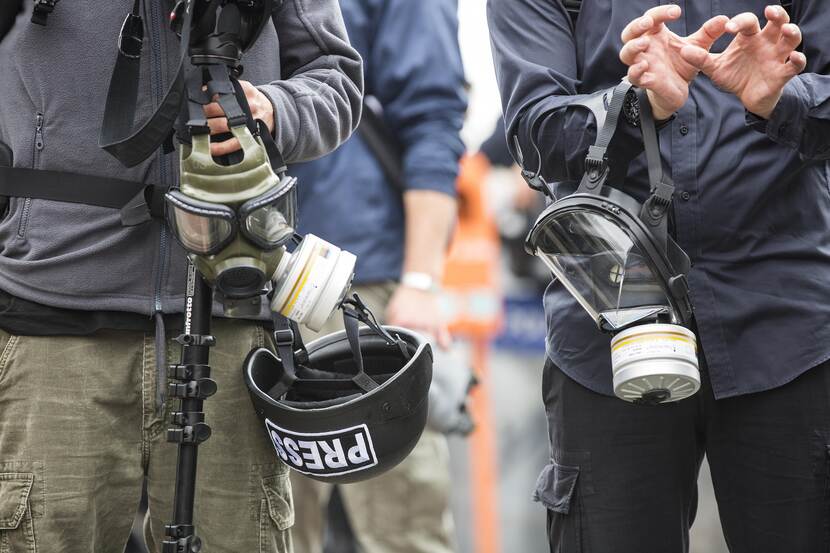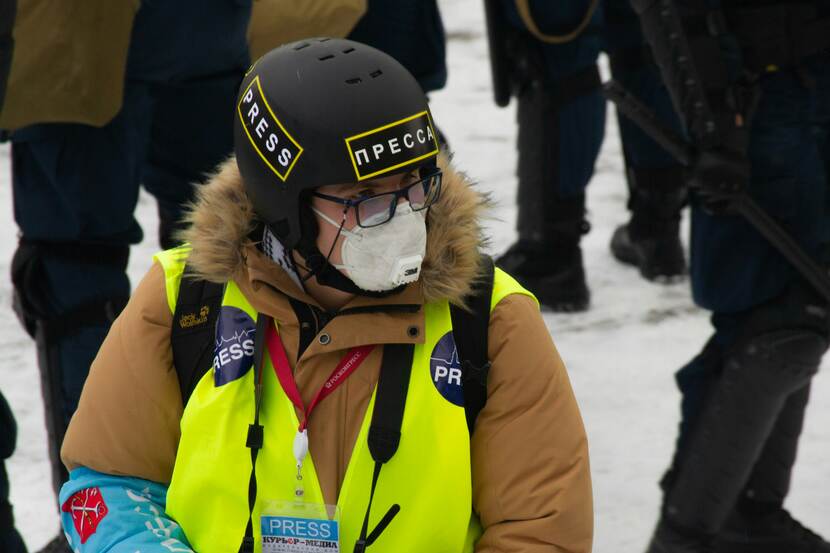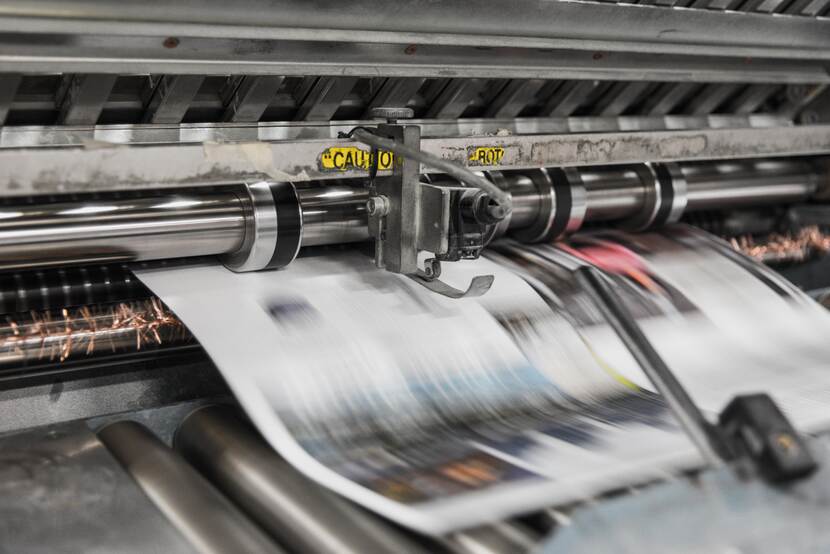Queen Máxima to speak about media freedom during state visit to Czech Republic
Weblogs
Media freedom is one of the issues on the agenda during the state visit by King Willem-Alexander and Queen Máxima to the Czech Republic on 4 and 5 June 2025. In a growing number of countries, media freedom is under pressure, and both Czechia and the Netherlands think that is a cause for concern. Independent media and digital resilience are crucial weapons for combating disinformation and protecting our democratic values.
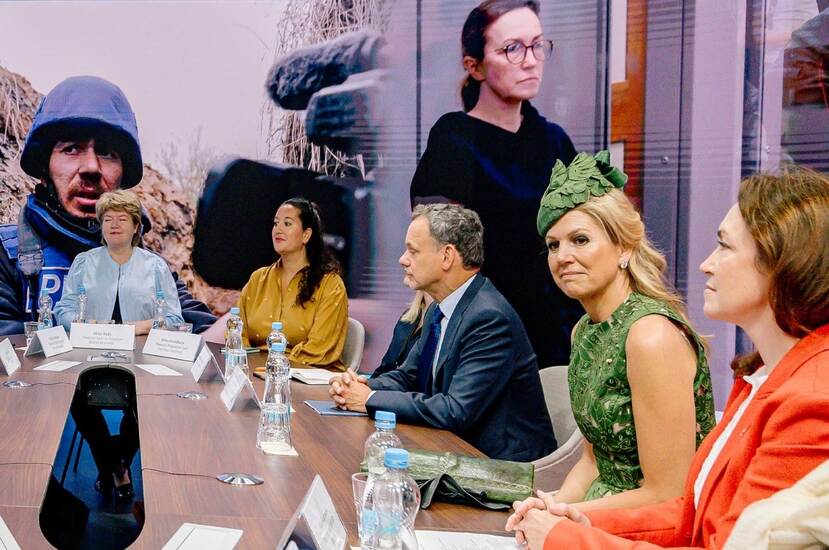
Czechia and the Netherlands are both committed to promoting media freedom and combating disinformation. Czechia, for example, is the proud host country of Radio Free Europe/Radio Liberty (RFE/RL), which moved its headquarters to Prague 30 years ago at the invitation of then President Václav Havel. RFE/RL, which received a €3 million donation from the Netherlands this week, is celebrating its 75th anniversary this year.
For its part, the Netherlands provides a safe haven for Russian independent media organisations in exile, such as The Moscow Times, Meduza and TV Rain. These organisations can’t operate in their homeland but work to ensure that independent news remains available there. Czechia and the Netherlands are also working to promote digital resilience among public authorities, businesses and the public alike.
At RFE/RL’s headquarters in Prague, the Queen will speak with independent journalists from various Eastern European countries about their work. They include Russian journalist Alsu Kurmasheva of RFE/RL and investigative journalist Alina Radu of the Moldovan news organisation Ziarul de Gardă.
Media freedom essential for a better society
A Moldovan national, Alina Radu (57) has been working to promote media freedom since the collapse of the Soviet Union. She established Ziarul de Gardă in 2004. This news organisation specialises in investigative journalism about corruption and human rights. It prints a weekly newspaper, runs a website and is active on social media. It reaches around one million people a month, of whom about 30% live outside Moldova.
As Alina explains, ‘When I started in 1989, there was no free media. We had zero freedoms. We journalists have fought hard for media freedom, with good results. Since people in Moldova have had access to independent information, they have begun to look differently at themselves and their development, and that of their country too. They want to make their own contribution to a better Moldova. Under the Russian regime they had no information other than what the Kremlin provided. They were like zombies.’
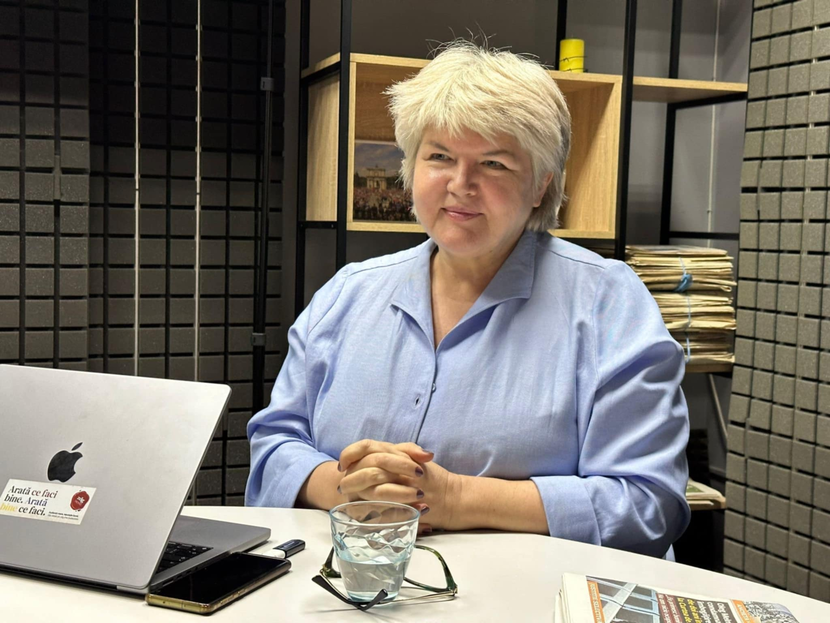
Alina continues: ‘Since the break-up of the Soviet Union, Russia has refused to leave Moldova alone. For 30 years the Russians have used all the influence they could. Did you know, for example, that Russia still maintains an illegal military presence in part of our country, Transnistria, with a military depot that the Moldovan authorities have no access to? Journalists are not permitted to enter the region, and if we do we risk being arrested. If you consider how Russia finances and deploys its disinformation army to influence the lives of ordinary people, you start to realise just what a difficult but crucial task the independent media has.’
When journalists are in danger, society as a whole is in danger
Like Alina, Alsu Kurmasheva (48) grew up in the Soviet era. She now works in Prague for RFE/RL. In 2023, while visiting her mother in the city of Kazan in Tartarstan, she was arrested, partly because she had co-edited a book called Saying No to War, which contained the stories of 40 Russians who opposed the invasion of Ukraine. She ended up spending nine months in a Russian prison. In August 2024 she was released as part of a Russian-US prisoner exchange.
According to Alsu, media freedom is under pressure in many countries, to put it mildly. ‘It’s like a forest fire,’ she says. ‘The flames are everywhere. Media freedom isn’t something that only affects journalists and news organisations. It relates directly to ordinary people’s lives. And companies need journalists too. After all, journalists report on the economy and make forecasts. So we all rely on independent information: public authorities, businesses and the public alike. If journalists are in danger, society as a whole is in danger.’
"It’s like a forest fire. The flames are everywhere. Media freedom isn’t something that only affects journalists and news organisations."
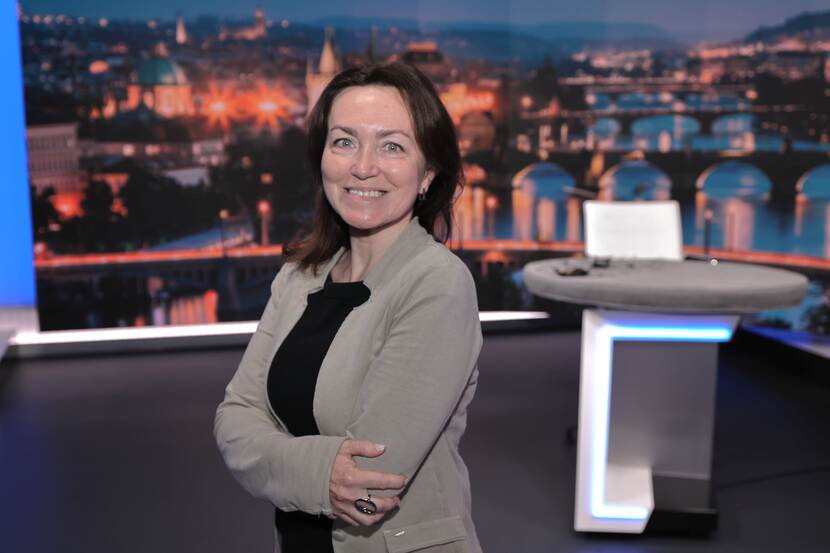
International support
The Netherlands is working in various ways to support and defend media freedom, using programmes and funds to assist efforts in countries that don’t enjoy the same freedoms we do. For Alina, international support has always been essential when fighting for media freedom in Moldova. ‘Legal and financial problems and threats were a daily occurrence,’ she says. ‘Our government was working against us and we had no money. It’s so encouraging to get financial and moral support from Free Press Unlimited in the Netherlands, because it’s clear they believe in your mission.’
A small glimpse of the free world
Alsu also knows from personal experience how vital international support is, and what a difference European cooperation can make. ‘When you’re in prison you’re cut off from the outside world. One fine day, a Dutch and a Czech diplomat suddenly appeared in court to see how I was doing. I wasn't allowed to speak with them, and we could only see each other from a distance. But looking in the eyes of those diplomats, I had a small glimpse of the free world. I knew that they’d give my husband and daughters an update on my situation. I can't find the words to express how important that was for me. And I’m grateful to Czechia and the Netherlands for that.’
Providing a safe haven
Ze geeft nog een voorbeeld van internationale steun. ‘Op een gegeven moment was er een terroristische aanval in Moskou. Een week later zag ik dat in de gevangenis op de staatstelevisie, met alle ronkende propaganda. Later kreeg ik te horen dat gewone Russen via een onafhankelijke Russische nieuwszender die vanuit Amsterdam opereert het eerder hadden gezien. Zo belangrijk is het dus dat Nederland een veilige haven biedt aan Russische mediaorganisaties.’
Combating disinformation is a huge amount of work
Alina’s biggest concern is the non-stop flow of disinformation coming out of Russia. ‘Putin is doing all he can to smash our fragile democracy in Moldova and corrupt our pro-European government – by spreading disinformation, for example. Ordinary people can earn money by helping to spread bizarre lies on social media. Things like, “Europe will destroy our churches” or “Europe wants everybody to be gay”.’
‘That’s why, as journalists, we have to be constantly checking the facts and explaining to our readers that they always need to pay attention to who’s posting what and why. It’s a huge amount of work to reverse the effects of the poison of disinformation, and it’s a non-stop job.’
The only option is to carry on
According to Alsu, attacks on independent media and the tidal wave of disinformation are part of a broader strategy: ‘The dream of autocratic regimes is to keep people in the dark. And that’s not just a violation of the rights of the people who live in those countries. It’s also dangerous for us, here in the West. If we don’t know what’s happening there, we also don’t know what those regimes are doing.’ That’s why Alsu plans to carry on pressing for the release of independent journalists imprisoned by such regimes. ‘That’s the only option,’ she concludes.
Despite the constant pressure and threats, Alina too plans to continue her fight. ‘I don’t want Moldova to go back to its old autocratic model, ever. Once you finally have something good and you’ve tasted the benefits, why would you ever want to give it back?'
